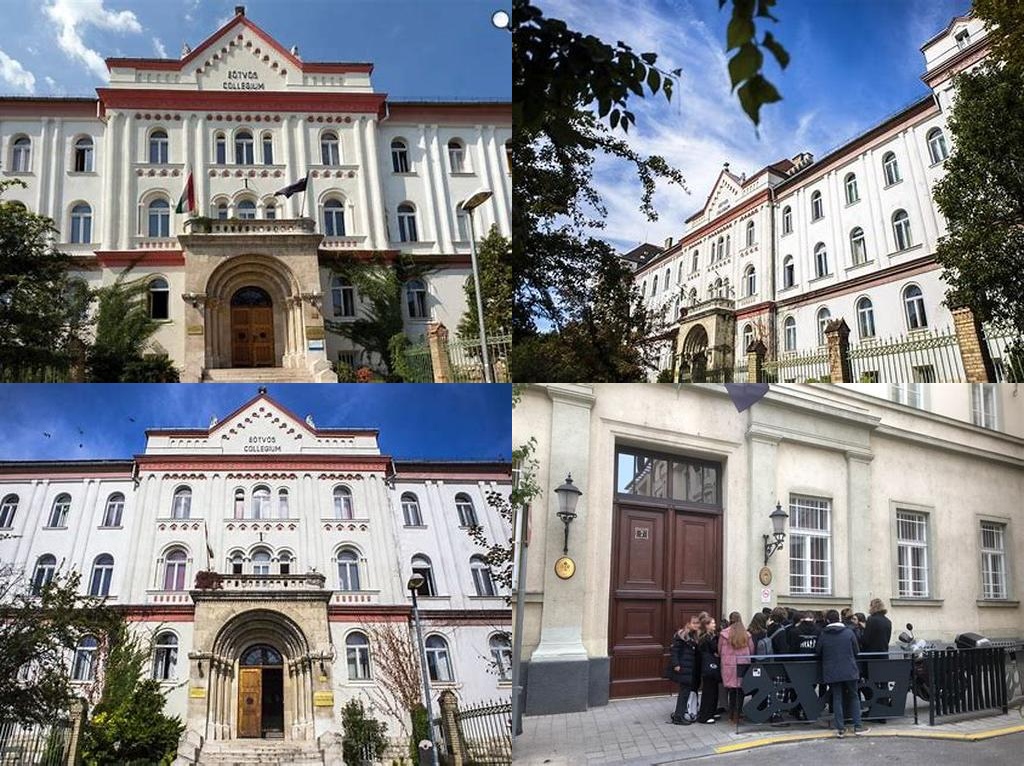
Eötvös Kollégium is not just any historic building nestled within the lovely urban fabric of Budapest. If you wander through the leafy streets of Ménesi út, you may chance upon its elegant yellow façade, a beacon of Budapest’s undimmed intellectual tradition. But this is more than just a student residence—it’s a living monument to Hungary’s academic ambition, a crossroads for dreams, innovation, and lifelong friendships. To step into its halls is to traverse more than a century of dedicated scholarship and Hungarian history unfolding right before your eyes.
The college goes back all the way to 1895, when the visionary physicist Loránd Eötvös—whose name graces not only the college but scientific units and craters on the Moon—established the institution. Eötvös had studied the elite École Normale Supérieure in Paris and saw the need for Hungary to cultivate its brightest minds through a similar system. His belief: nurturing exceptional university students in a shared community would spark creative thought and passionate learning. It’s no exaggeration to say this experiment shaped generations of Hungarian intellectuals—including Nobel laureates, famous writers, and celebrated mathematicians—who went on to shape the world well beyond the city limits of Budapest.
Eötvös Kollégium isn’t an exclusive mausoleum of scholarship, though. The college’s eclectic cultural life is as much a draw as the achievements of its alumni. Wandering through its corridors, you might catch a glimpse of the music room, where impromptu jazz sessions mingle with violin practice. There’s a palpable sense of community pride in the library too—a treasure trove for book lovers, lined with Hungarian classics and first editions you won’t find just anywhere. Even without a library card, a respectful visitor feels welcomed by the whiff of old pages and the warm exchange of ideas that drift from every quiet nook.
But the charm of Eötvös Kollégium doesn’t stop at academic tradition. Enter one of its famous lecture halls, and you’ll likely stand where John von Neumann, one of the world’s most celebrated polymaths, once walked. The walls seem to echo with lively debate, the blackboards still dusted faintly from previous theorems and philosophical musings. Each fixture, each creaky wooden stair, stands testament to the collaborative spirit meant to elevate every student—regardless of their background—into Hungary’s future leaders and thinkers.
Beyond the walls, the college gardens invite you to ponder. Under giant, rustling trees, students share picnics and ideas, a few meters from the busy city but immersed in a tranquil microcosm of academia. Statues commemorate past professors; the art and architecture reflect the aesthetic ideals at the heart of the original vision. The feeling is inspiring, even for a drop-in visitor—and the views over Budapest’s rooftops aren’t bad either.
For those tracing the footsteps of literary and scientific giants, Eötvös Kollégium is more pilgrimage than tourist pit stop. Guided tours or open days reveal the secrets of the building—and, if you’re lucky, you’ll overhear animated conversations about mathematics, philosophy, or politics, still spoken with the earnestness that has characterized generations of students here. But it’s not all abstract thought; there’s a delightfully human element, as the college’s traditions come alive through quirky rituals, informal concerts, and friendly chess tournaments at dusk.
The allure of Eötvös Kollégium is in its duality—a hallowed center of scholarship, yes, but also a warm, living community. Whether you’re a curious wanderer, a bibliophile tracing first editions, or a fan of university lore, finding yourself among these storied halls connects you to more than just Hungary’s academic past; it immerses you in a tradition that continues to shape its future.





